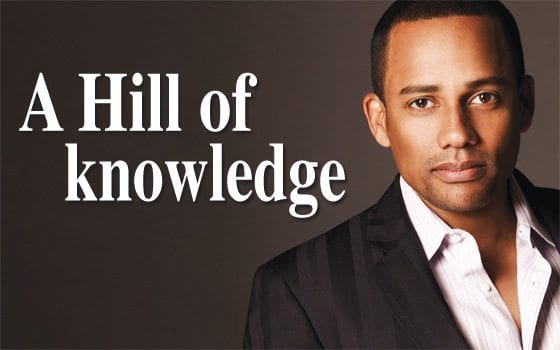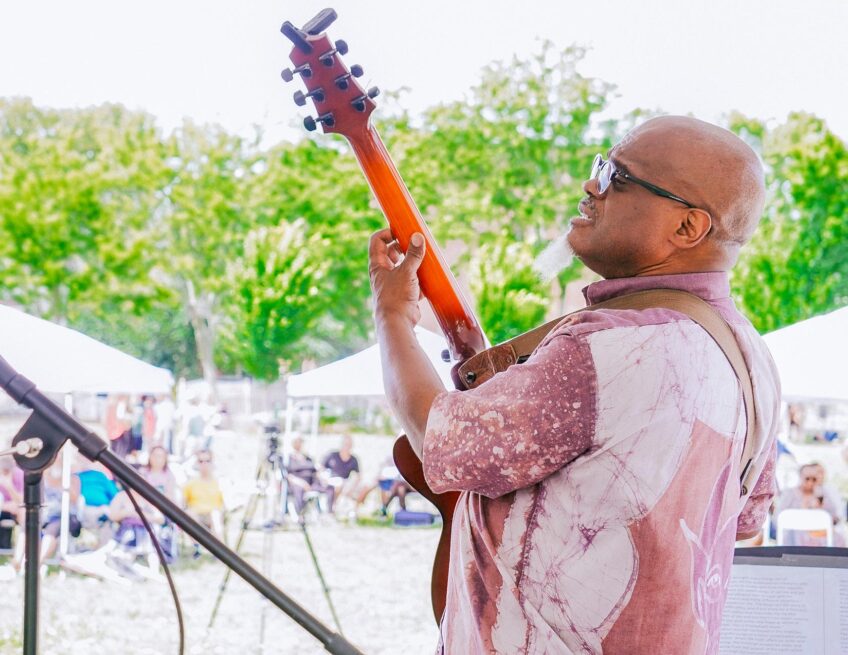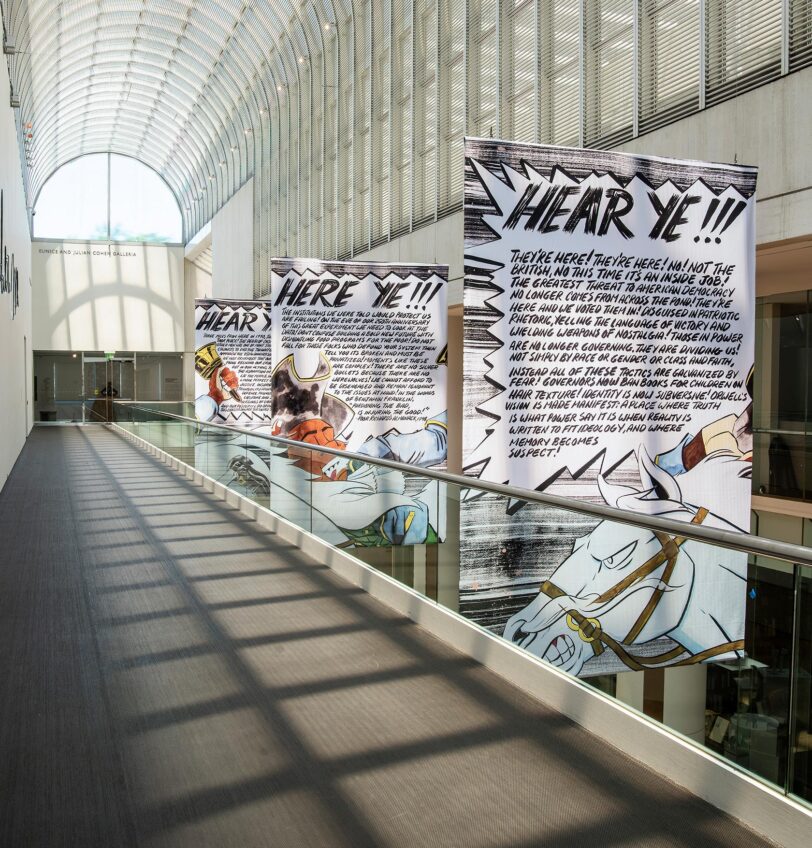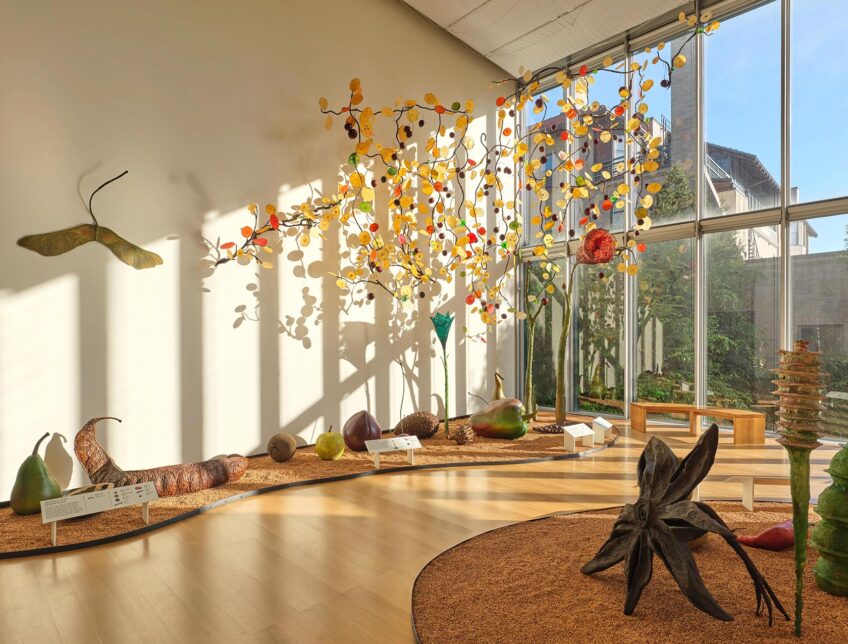Harvard Law School grad Hill Harper has the “community” in mind. It doesn’t hurt that he is an accomplished actor.

Harvard Law School grad Hill Harper has the “community” in mind. It doesn’t hurt that he is an accomplished actor.
Before finally sitting down on Monday night in New York City at the opening screening of Tyler Perry’s “For Colored Girls” of which he stars opposite Kerry Washington, Janet Jackson, Mariah Carey, Jill Scott, and a host of other fine actors and actresses, Hill Harper had a few things to do during the day — most of them taking place here in Boston.
In the morning, he sat with an amped-up group of 500 young people at the annual youth symposium held at Wheelock College. Themed “Bridges to Our Future: The Next Generation of Leaders,” this lively event was the culmination of a three-week long curriculum that required young participants to read Harper’s books, “Letters to a Young Brother” and “Letters to a Young Sister.” The curriculum also encouraged them to think critically about becoming leaders, combating negative messages, and attending college, and other career goals.
After the symposium, Harper took part in a special convocation honoring Harvard Law School Professor Charles J. Ogletree with an honorary degree from Wheelock College.
Harper portrays Dr. Sheldon Hawkes on the CBS television series “CSI: New York.” He also starred in the films “Lackawanna Blues,” “He Got Game,” “Beloved,” “Get on the Bus,” and he appeared on numerous TV and cable network shows, including “The Sopranos.”
He is also won the NAACP Image Award for Outstanding Actor in a Drama Series for three consecutive years.
What inspired you to write your first book, “Letters to a Young Brother?”
Years ago, because I grew up in the public school system, and then ended up going to undergrad then to grad school, I would get invited to speak at a lot of different schools. I started to realize from all the young people and students I would meet that there is very little motivational material out there, and particularly the young men, and things that they were interested in reading.
So I wanted to create a book that would be motivational in nature almost like mentorship on paper, but in a way that was accessible and very fun for them to read, and something they would be interested in. And that is why I wrote “Letters to a Young Brother: MANifest Your Destiny.”
You published “Letters to a Young Brother” in 2007, then “Letters to a Young Sister” in 2009, and now we have “The Conversation — How Black Men and Women Can Build Loving, Trusting Relationships.” From the start, was it a plan to publish books that would grow together organically?
I basically grew organically. It never works — there wasn’t a bigger plan. I was thinking that “Letters to a Young Brother” was going to be my only book, but it just became clear that when I did it, a lot of young women were saying “Well, what about us? Why not something for us?” So I did that. And there are so many single parent headed households, and all these things about families in our communities that are crumbling, that I wanted to investigate and do something, and that’s why I wrote “The Conversation” about male and female relationships, and the African American family, and all of that. You’re absolutely right, there’s kind of an organic link that links all of them in its own way.
Can you tell me about some of the criticisms that you have gotten? People are saying, “Oh this is a single man writing about relationships between men and women.” Do you have anything to say in response to some of those types of comments?
Yeah, actually (laughs) that’s the whole point: writing it from a single man’s perspective because it’s about the journey. It’s about how do we as single individuals come together. So the first line in the books is “I am in no way representing myself as an expert in relationships. I’m just someone who’s on the journey, just like my readers” and let’s have a conversation. Let’s discuss the real deal. What’s really going on? It’s not someone who is married trying to tell you — well you should follow me so you can get married, too — no, it’s a single person, just like the reader trying to figure it out. And we have so much material in this arena from a female point of view, and this book is obviously written from a male point of view because I’m a male.
What was the writing process like for this book?
I really feel that I’ve been very even-handed with it. I did so much research, so many interviews with so many couples: people who’ve been married 60 years, to people who’ve been divorced six times, to people who are devoutly single, to serial monogamists, to single women, single men, the whole thing. So there’s a lot of source material that I think you’ll enjoy it.
What is one solution that you present in it?
The reason why it’s called “The Conversation” is because the conversation exists on three levels, and we have to have an open and honest dialog on all three of these levels to solve these problems, these issues. First is the conversation with yourself; it’s taking that honest look in the mirror and being completely honest about where your baggage is. What are you bringing to the table? What baggage are you bringing? What hypocrisies are you bringing? And are you sending a representative even on your own behalf? Second is the honest conversation with partners and potential partners. And again that same thing, are you sending a representative or is it truly the authentic you that you’re presenting? Are you getting over those fears, and the baggage, etc?
And third is the conversation with the greater community. That includes family, friends — your circle. And what are they projecting onto you and what misinformation they’ve given you? And in turn, what projections are you bringing in? And so, really peeling back layers and having a really good and open honest conversation on all three of those levels is really the fundamental theme of the book.
It’s about time that we had such a contribution to the literary world and to our community. You did a lot of work to get out the vote during Barack Obama’s election, and you have also known him for 20 years, having roomed with him back in law school at Harvard. Can you define the term “new voters” and explain how important it is for this voting block get out there and vote?
Oh it’s critical, critical, critical! It’s the new voters that got the president elected, because you have to remember that he didn’t win by a landslide by any means. It was still a momentous time, but people forget that there wasn’t this huge 20-point victory. What created that difference were newly registered voters, and the engagements of those people — particularly in a lot of young people — is critical.
What’s your advice to those who want the president to get a second term?
I think that all of us need to stay engaged and involved, because with mid-term elections coming up in the next week, it is critical. All the people that turned out to vote, I hope that they come out and vote again. People are saying that folks aren’t going to turn out in the same way, but we really need to support the candidates here in the midterm election.
In addition to the work you’re doing on “CSI: New York,” do you have any other projects in the pipeline or in mind?
Yes. I’m working on directing a film that I optioned, a graphic novel that I’m very excited about, and that I have to go out and raise the money for. And also, “For Colored Girls” is a film that I did that opens on Nov. 5.
What role do you play in that film?
I play Kerry Washington’s husband in the film, and I’m very proud of the film — proud to be a part of it. The film is different than most Hollywood films where the female characters tend to support the men. In this case it’s really the male characters that support the female leads, and there’s so many strong incredible roles written for the women. And that the adaptation of the play was done very well to go from theater to screen and it’s very faithful in my opinion to the play. It’s kind of the thing I felt when I did “Lackawanna Blues,” just something that I think is an iconic film for our community, and something I’m very proud to be associated with.






